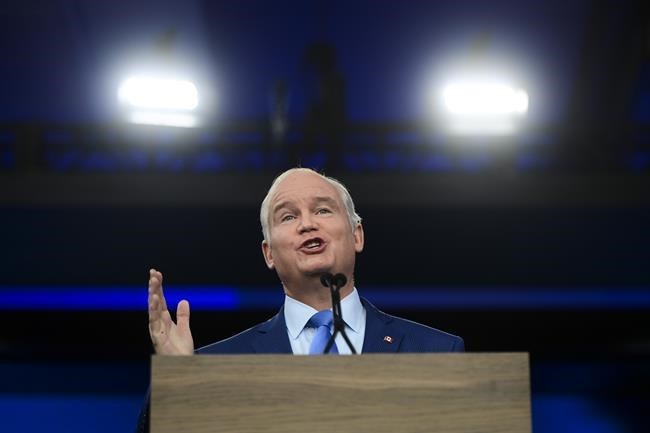OTTAWA — An in-depth analysis by The Canadian Press of federal parties' financing at the grassroots level shows Conservative candidates' riding-based war chests are flush with cash, dramatically outpacing their political rivals.
A review of the most recent financial statements filed by riding associations to Elections Canada show that Conservative associations have, on average, just under $61,000 in net assets, almost $25,000 more than the ruling Liberals whose associations on average had $36,250 in net assets at the end of 2020.
The figures were smaller for New Democrats and Greens whose riding associations had assets valued in the four-digit range — $7,123 and $6,240, respectively.
The figures are based on annual returns for the 2020 fiscal year filed by July 22 from parties represented in the House of Commons. In all, there were 150 Green associations, 234 NDP associations, 143 Liberal and 251 Conservatives included in the analysis.
Only 10 Bloc Québécois associations had filed their returns with Elections Canada at the time of this analysis. The party only runs candidates in Quebec. The 10 associations with returns had on average $22,416 in net assets.
More returns are likely to trickle in over the coming weeks, such as Conservative Leader Erin O'Toole's association in his riding of Durham, and Bloc Québécois Leader Yves-Francois Blanchet's riding of Beloeil-Chambly.
Prime Minister Justin Trudeau's association in Papineau had just over $83,000 in net assets, while NDP Leader Jagmeet Singh's association in Burnaby South had $61,435.
While the parties like to tout their fundraising prowess at the national level, a well-stocked riding association cannot only help fund local contests but also transfer money to other associations and the national campaign to help cover costs.
The riding associations themselves are the formal entities that can raise money in between campaigns, and may use some of that to promote a new or incumbent candidate locally before campaign spending limits come into play, said David Coletto of Abacus Data, who has studied the financing of riding associations.
How much they can raise depends on a variety of factors, including whether the party has a prominent MP or cabinet minister and local demographics, said Tom Flanagan, a former Conservative campaign adviser and now a retired University of Calgary politics professor.
"There is a lot of imbalance in fundraising … and parties try to address it in various ways to move money around to where it is needed," he said. "And like everything in politics, the processes are imperfect, but you do your best."
The top-10 riding associations in the country were all Conservative in the analysis, with longtime MP Scott Reid's association in the Ontario riding of Lanark-Frontenac-Kingston the most well-stocked with over $351,000 in net assets.
The top Liberal is Procurement Minister Anita Anand, whose riding association in Oakville had nearly $205,000 in net assets, which puts the association two spots shy of the top 10.
Green MP and former leader Elizabeth May has the most flush association in her party with Saanich-Gulf Islands (over $160,500) while Don Davies is the top New Democrat with his Vancouver Kingsway association holding just over $99,000 in net assets.
The associations with candidates that raise the most money are often the ones that least need it to win, Flanagan said.
Where the money is needed is in ridings where the parties believe they have a shot at winning, but little cash to make it happen, said Lori Turnbull, director of Dalhousie University's school of public administration. Parties will move money around between associations to concentrate resources in contestable races, she said.
Spending by local associations in those ridings can have a small effect on election outcomes, Coletto said.
"It could matter, and especially in some of those close races," he said. "But for the most part, most people don't vote for the local candidate. They're voting because of factors that are usually national or beyond even the national campaign."
Essentially, riding associations have become more like fast-food franchises where what they dole out as far as messaging doesn't often waver from what the national campaign has set out, Turnbull said.
Where it might waver is in ridings where parties don't expect their pitch or their leader to resonate with voters, she said.
"They will concentrate resources or time and money on ridings that they think are more contestable," she said. "That's up to the party to decide whether something is worth giving it a shot."
This report by The Canadian Press was first published July 26, 2021.
Jordan Press, The Canadian Press



